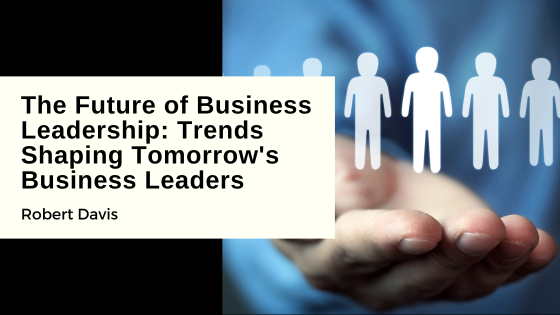In an era where the business landscape is constantly evolving, the role of a leader is undergoing a significant transformation. The future of business leadership is not just about managing teams; it’s about steering organizations through unprecedented changes while fostering innovation, adaptability, and inclusivity. Several key trends are shaping the qualities and skills required of tomorrow’s business leaders.
Adaptability in the Face of Uncertainty
The rapid pace of technological advancements and global shifts brings unprecedented uncertainty. Tomorrow’s leaders must possess the ability to adapt swiftly. They will need to navigate through ambiguity, make informed decisions in volatile environments, and guide their teams with resilience and composure.
Emphasis on Diversity, Equity, and Inclusion
The future of business leadership embraces diversity, equity, and inclusion (DEI) as essential pillars for success. Leaders are expected to create environments where diverse perspectives thrive. Tomorrow’s leaders will champion inclusivity, recognizing the value of different backgrounds and viewpoints in fostering innovation and creating a positive organizational culture.
Tech Proficiency and Digital Fluency
Technological advancements are reshaping industries at an unparalleled rate. Tomorrow’s leaders must be digitally fluent, leveraging technology to drive efficiency, enhance customer experiences, and identify new opportunities. Understanding emerging technologies like AI, blockchain, and data analytics will be crucial in making informed strategic decisions.
Purpose-Driven Leadership
The emphasis is shifting from purely profit-driven approaches to purpose-driven leadership. Tomorrow’s leaders will be expected to align business goals with social responsibility, sustainability, and ethical practices. Businesses will thrive under leaders who prioritize the well-being of not just their organization but also society and the environment.
Remote Work and Hybrid Leadership
The COVID-19 pandemic accelerated the adoption of remote work. Tomorrow’s leaders must excel in managing remote and hybrid teams, fostering collaboration, maintaining team morale, and ensuring productivity across dispersed work environments.
Continuous Learning and Growth Mindset
The learning curve for leaders is perpetual. Embracing a growth mindset and promoting a culture of continuous learning within organizations will be pivotal. Tomorrow’s leaders will need to be agile in acquiring new skills, unlearning outdated practices, and adapting to evolving industry landscapes.
Collaborative and Agile Leadership Styles
Hierarchical leadership is gradually being replaced by more collaborative and agile approaches. Tomorrow’s leaders will encourage participative decision-making, empowering team members to contribute ideas and solutions. Agile leadership allows for quick adaptation to changing circumstances, enabling organizations to stay competitive.
The future of business leadership demands a multifaceted skill set. Leaders will need to possess not just traditional management skills but also emotional intelligence, tech proficiency, adaptability, and a strong commitment to ethical and inclusive practices. Embracing these trends will not only define the success of individual leaders but also shape the success of their organizations in the dynamic and ever-evolving business landscape of tomorrow.
